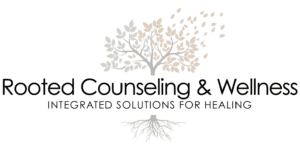Grieving is a universal experience that we all encounter at some point in our lives. It is a natural response to loss, whether it be the death of a loved one, the end of a relationship, or any significant life change. While grief is a normal and necessary process, it can also be overwhelming and debilitating for some individuals. In such cases, seeking professional help through grief counseling can provide valuable support and guidance. This blog aims to shed light on the importance of grief counseling, how it can help individuals normalize their experiences, and how it can assist in improving their overall functioning.
Understanding the Grieving Process :
Grief is a complex and multifaceted emotional response to loss. It is important to recognize that everyone grieves differently, and there is no right or wrong way to grieve. The grieving process can involve a range of emotions, including sadness, anger, guilt, confusion, and even relief. These emotions may come in waves and can be unpredictable, making it challenging for individuals to navigate through their grief alone.
Depression and Grief :
During the grieving process, it is common for individuals to experience feelings of depression. However, when these feelings become overwhelming and start to interfere with daily functioning, it may be an indication that professional help is needed. Grief-related depression can manifest in various ways, such as a loss of interest in previously enjoyed activities, changes in appetite or sleep patterns, difficulty concentrating, and a general sense of hopelessness.
The Role of Grief Counseling :
Grief counseling provides a safe and supportive environment for individuals to explore their emotions, thoughts, and reactions to loss. A trained grief therapist can help normalize the grieving process, reassuring individuals that their experiences are valid and understandable. By offering empathy and understanding, a grief counselor can create a space where individuals feel heard and validated.
One of the key benefits of grief counseling is the opportunity to set and achieve goals to improve functioning. Grief can often disrupt various aspects of life, including work and relationships. A grief counselor can assist individuals in identifying specific areas of difficulty and collaboratively develop strategies to address them. This may involve exploring coping mechanisms, developing self-care routines, and establishing healthy boundaries.
Additionally, grief counseling can provide individuals with tools to navigate the complex emotions associated with grief. Therapeutic techniques such as EMDR, Lifespan Integration, cognitive-behavioral therapy (CBT) or mindfulness-based approaches can help individuals challenge negative thought patterns, manage overwhelming emotions, and cultivate resilience.
Conclusion :
Grief is a deeply personal and unique experience, but it is not something that individuals have to face alone. Seeking grief counseling can be a crucial step towards healing and finding a sense of normalcy after a significant loss. By working with a trained grief therapist, individuals can gain support, validation, and practical tools to navigate the grieving process.
If you find that your grief is overwhelming and impacting your ability to function at work or within your important relationships, it may be time to consider grief counseling. Remember, seeking help is not a sign of weakness but rather a courageous step towards healing and growth. Reach out to a qualified grief counselor who can guide you through this challenging journey and help you find hope and resilience in the face of loss. Be sure to check out our free grief support group in Draper, Utah held at our main Rooted Counseling & Wellness Office.






